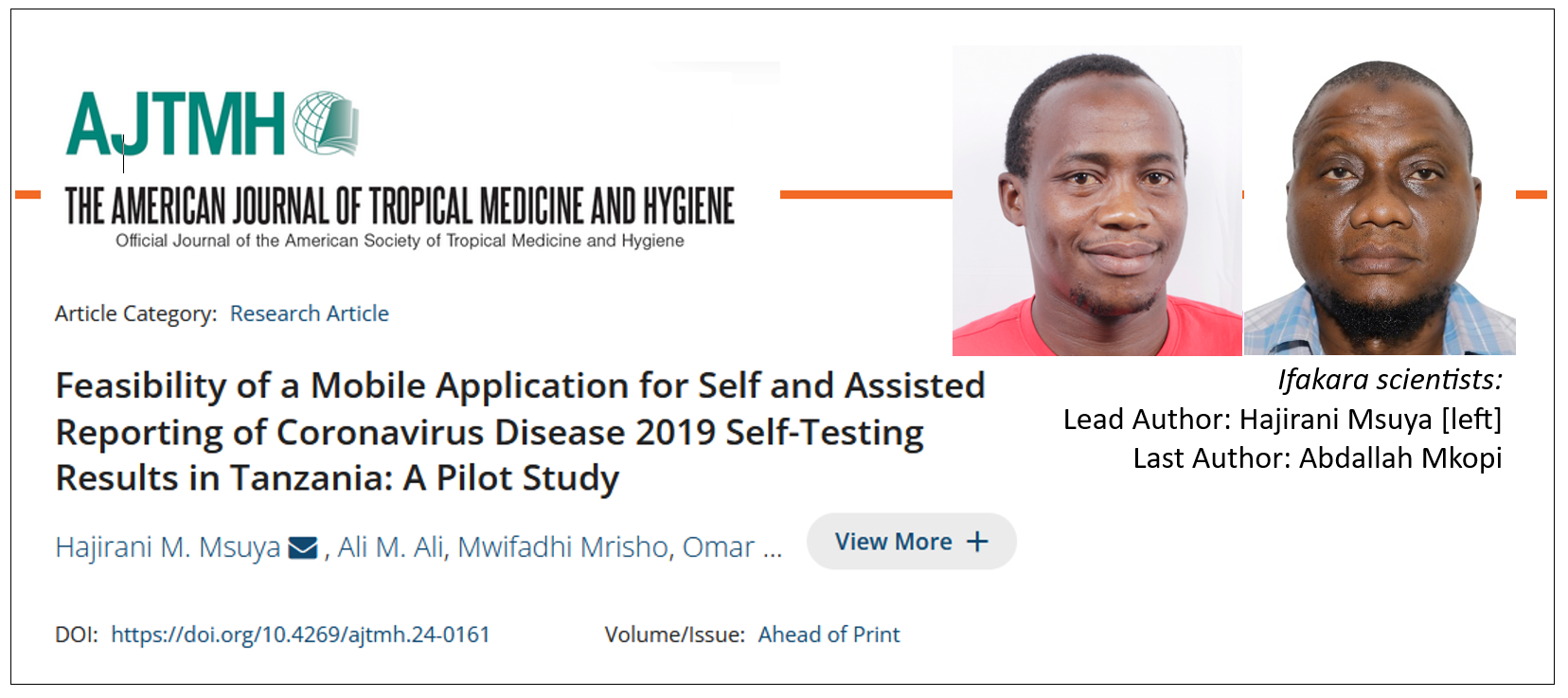
DIGITAL HEALTH: Study unveils mobile app breakthrough for Covid-19 testing

A groundbreaking study from the Ifakara Health Institute has introduced a mobile app that could change the way Tanzanians monitor and manage COVID-19. Led by Hajirani Msuya, this pilot project tested a tool called the COVISUSPECT APP-USSD, designed to let everyday people report their rapid test results using just a basic mobile phone—no smartphone or internet needed.
Conducted between June and October 2022 in three bustling regions—Dar es Salaam, Dodoma, and Mara in the United Republic of Tanzania — the study offers hope for faster, easier disease tracking across the country.
“This study is a game-changer in healthcare, unlocking the power of technology to transform how we manage our health. By demonstrating the effectiveness of self-testing and self-reporting with the help of healthcare professionals and community health workers, we've proven that a healthier future is within reach,” says lead author Hajirani Msuya.
A simple idea with big impact
The concept is straightforward: give people rapid COVID-19 tests they can use at home or work, then let them send their results instantly through a mobile app. Unlike apps that need data plans or fancy devices, COVISUSPECT APP-USSD works by dialing a special code, much like checking your airtime.
In the study, 412 participants—ranging from bus drivers to miners—tried it out. About 75% (307 people) successfully reported their results, either on their own or with help from community health workers and nurses. Msuya says this shows the app can work in real life, even with basic tech.
The goal? Catch COVID-19 cases early and get help where it’s needed, fast. With the World Health Organization estimating that six out of seven cases go unreported in Africa, tools like this could fill a critical gap, especially in places far from clinics.
How it worked in the field
The study zeroed in on busy spots: a gold mining camp in Mara, a major bus terminal in Dodoma, and another in Dar es Salaam’s Gongolamboto area, where motorcycle and tricycle drivers signed up. Participants used a nasal rapid test called Flowflex, then entered details like their age, sex, and test outcome into the app. Out of the 307 completed reports, 259 tested negative, while 48 were positive. Nearly half were vaccinated, showing a mix of people joined in.
Not everything went smoothly. Network issues and app errors stopped about 25% of users from finishing, and the app’s 20-second time limit was a hurdle for some. Still, Msuya’s team sees these as fixable bumps on the road to a bigger rollout.
A team effort for Tanzania’s health
Hajirani Msuya, based at the Ifakara Health Institute—a top research hub in Tanzania—didn’t do this alone. The Tanzania Ministry of Health, the National Institute for Medical Research, and the President’s Office, Regional Administration and Local Government Tanzania (PO-RALG) teamed up to make it happen.
Local leaders and hospital staff helped pick testing sites, while the Foundation for Innovative New Diagnostics (FIND) provided funding. The American Society of Tropical Medicine and Hygiene also chipped in to share the results.
“This is about empowering people to manage their health,” Msuya says. “With a phone and a test, we can reach more communities.”
What’s next?
The study, published online in the American Journal of Tropical Medicine and Hygiene, calls this app a “promising tool” for fighting outbreaks. It’s not just about COVID-19—experts think it could work for other diseases like HIV or tuberculosis, too. Msuya’s team wants to test it on a larger scale, iron out the kinks, and maybe even add features like health tips for users.
“With over a third of participants successfully using the antigen detection rapid diagnostic test and app to report their self-test results, this breakthrough not only empowers individuals but also revolutionizes healthcare delivery. As we expand and improve this technology, we pave the way for a more resilient, accessible, and prepared world for future challenges. The future of healthcare is here—innovative, empowering, and unstoppable!” stresses Msuya.
For now, this pilot proves one thing: even simple tech can make a big difference. In a country where mobile phones are everywhere, this could be the start of a health revolution, one text at a time.
Read full article here.
